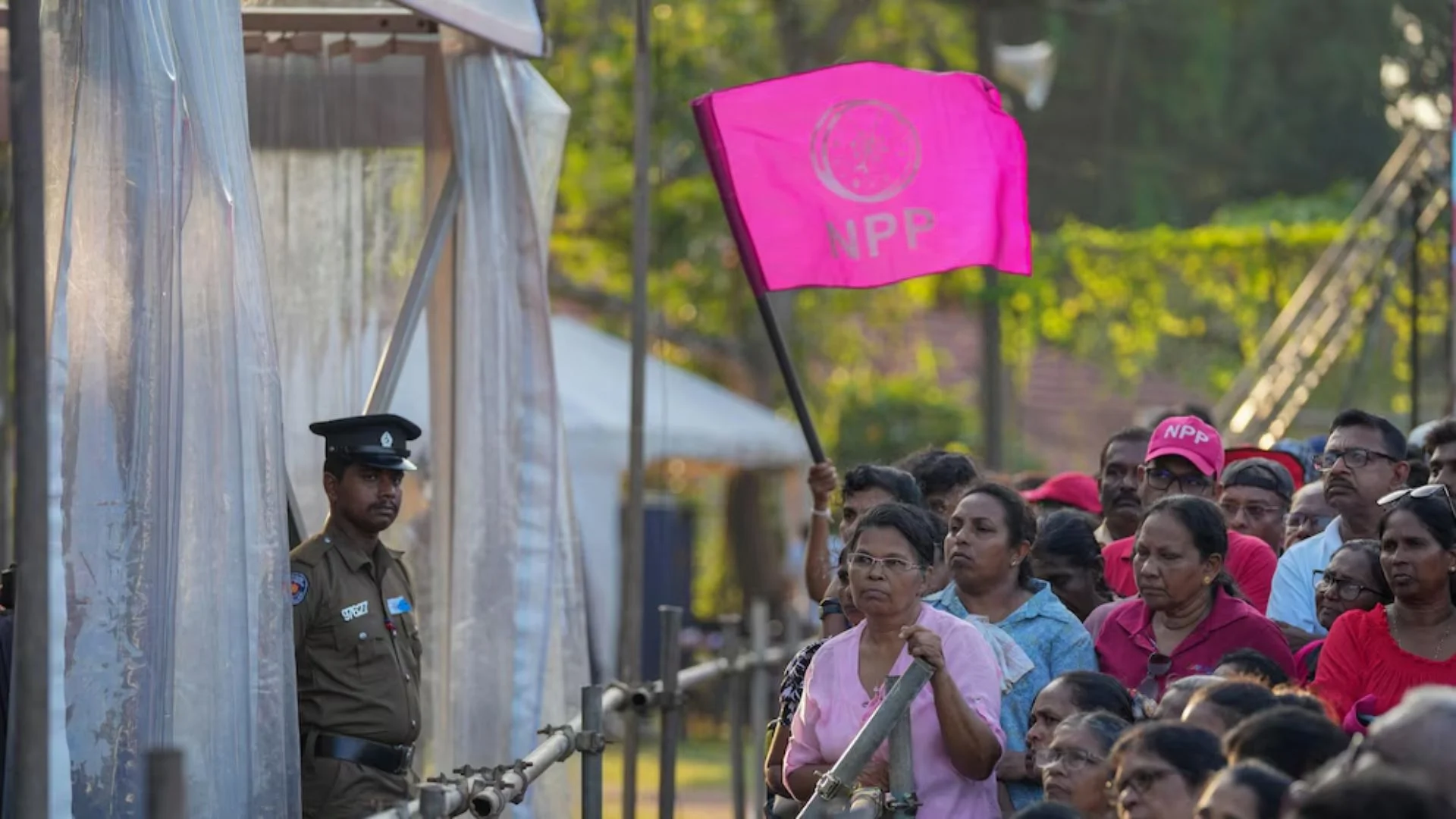Sri Lanka will hold its second national election in two months on Thursday, with President Anura Kumara Dissanayake, the country’s first leftist leader, calling for a snap parliamentary vote. Dissanayake aims to address corruption and recover stolen national assets following the country’s economic collapse in 2022. His party, the People’s Liberation Front (JVP), is expected to dominate the polls despite the opposition’s fragmented state.
Election Details and Voter Participation
The election will see around 17.1 million voters casting their ballots for 8,800 candidates. Polls open at 7:00 am (0130 GMT) and close at 4:00 pm, with initial results expected by Friday. Dissanayake’s coalition, the National People’s Power (NPP), is vying for a two-thirds majority in the 225-seat parliament, which would give him the political leverage needed to push through his reform agenda. The NPP had only three seats in the previous parliament, and Dissanayake, who has been an MP for nearly 25 years, is hoping to strengthen his position to implement the necessary changes after the economic crisis that led to the fall of former president Gotabaya Rajapaksa.
Dissanayake’s Leadership and Reform Agenda
Dissanayake, who led the JVP during two uprisings in 1971 and 1987, now leads the country through peaceful democratic elections. Despite his earlier promises to renegotiate a $2.9 billion IMF bailout secured by his predecessor, Ranil Wickremesinghe, Dissanayake has opted to uphold the agreement. His governance is expected to follow a balanced socialist-democratic model, with an emphasis on fiscal discipline. The Ceylon Chamber of Commerce (CCC) has expressed support for Dissanayake’s reforms, seeing them as vital for encouraging investor confidence and economic stability.
Opposition Challenges and Election Atmosphere
The opposition remains in disarray, with minimal campaigning and a lack of enthusiasm surrounding the election. Opposition leader Sajith Premadasa, who has campaigned for a coalition government, pledged to pressure Dissanayake into honoring tax cut promises. However, political analyst Kusal Perera remarked that the opposition’s weak presence has made the election result seem almost predetermined. The IMF will also visit Colombo to assess Sri Lanka’s economic progress as part of the ongoing bailout deal, with the possibility of releasing an additional $330 million tranche of the loan.
Legacy of the Outgoing Administration
The outgoing parliament, previously dominated by Mahinda Rajapaksa’s Sri Lanka Podujana Peramuna (SLPP), has fragmented. Many senior politicians from the Rajapaksa era have chosen not to participate in this election, and Mahinda Rajapaksa himself is absent from the ballot. His son, Namal Rajapaksa, a former sports minister, is seeking re-election. This election is a pivotal moment for Sri Lanka as it attempts to recover from its worst economic crisis in recent history under the leadership of Dissanayake.
As Sri Lanka prepares for this important election, the country’s future remains uncertain, with political shifts and economic recovery efforts taking center stage in Dissanayake’s ambitious reform agenda.























